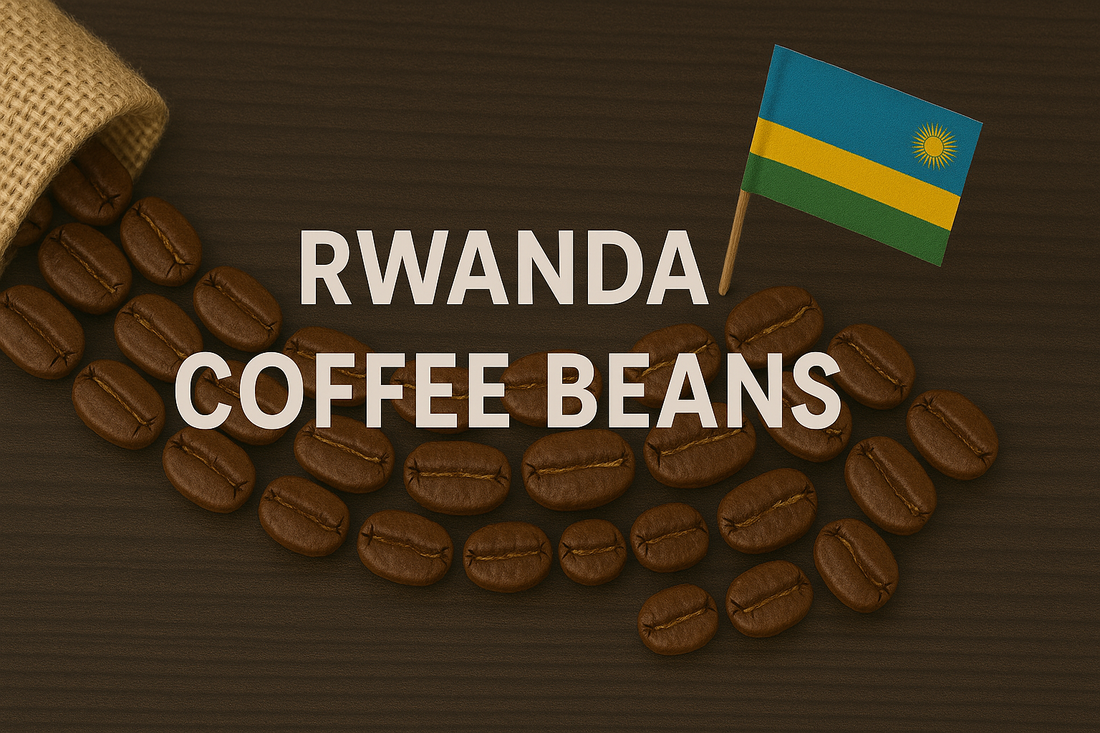
Rwanda Coffee Beans
正啟 GLOBALEYESShare this news
Coffee cultivation in Rwanda dates back to 1904 during German colonial rule after World War I. German missionaries brought the ancient Bourbon variety from Guatemala and planted the first coffee trees in a monastery located in the Shanguugu province, marking the beginning of Rwanda's coffee industry. The first coffee exports began in 1917, though due to limited resources, most farmers sent their harvests to centralized washing stations, resulting in relatively small export volumes. Thus, Rwanda’s coffee industry was characterized by small-scale farming. In 1993, Belgian colonial policies further reduced profitability for smallholder farmers and compromised coffee quality. Only after Rwanda’s independence and the establishment of official coffee organizations was the situation turned around.

Today, Rwanda primarily cultivates high-quality Arabica coffee, renowned for the ancient Bourbon variety, accounting for more than 95% of production. Less than 5% consists of Bourbon variants like Caturra and Catuai. Rwandan coffees offer a fresh, grassy aroma, vibrant tropical fruit flavors, balanced acidity, and a full-bodied, complex mouthfeel. These coffees often deliver sweet aftertastes reminiscent of cinnamon, almond, and honeyed grapefruit, known for their overall clarity, richness, and smooth finish.

Like many African countries, Rwanda primarily relies on smallholder coffee farms due to limited labor and economic resources, producing less than 1% of the world's coffee. Most specialty coffee production regions are situated around Lake Kivu in the west and near the capital, Kigali. Lake Kivu, Africa's highest volcanic lake, erupts approximately once every thousand years, providing highly fertile volcanic soil, mild and stable climate conditions, creating ideal conditions for coffee cultivation. Additionally, the western Rutsiro region is particularly renowned for producing original Bourbon Arabica coffee.

Because of the prevalence of smallholder farms, coffee cherries are usually collected and processed centrally using the washed method, known for producing clean, bright, and aromatic coffees. The Rwandan washed processing is meticulous: after picking and sorting, cherries undergo pulping and washing, followed by approximately 12 hours of dry fermentation. They are washed again and then undergo two stages of wet fermentation, each lasting around 24 hours, with washing in between, before being fully sun-dried. This rigorous method is heavily reliant on the ample water resources provided by Lake Kivu, becoming a distinctive characteristic of Rwandan coffee.

Coffee Growing Regions and Notable Facilities
Shyira
Located in Nyabihu region in western Rwanda, the Shyira Cooperative primarily focuses on harvesting cherries from older Bourbon coffee trees, targeting only the ripest, reddest cherries. They maintain strict quality standards, particularly excelling in acidity and delicacy.

Mushonyi Washing Station
Situated in Rutsiro, western Rwanda, Mushonyi is internationally acclaimed for its exceptional quality. It won the prestigious Cup of Excellence (COE) award in 2010 and subsequently ranked 1st, 12th, 16th, and 28th in various evaluations in 2011.

Coocamu Coffee Cooperative
Part of the larger MUSASA cooperative, located in Rutsiro, western Rwanda. This cooperative practices organic farming methods, promoting sustainable and eco-friendly agriculture. It is also known for its gender equality initiatives, employing more than 20% women.

Dukunde Kawa Cooperative
Located in the northern Rushashi region and part of MUSASA, Dukunde Kawa consistently achieves high rankings in cupping competitions. Situated at altitudes over 2,000 meters, the cooler conditions enable longer fermentation, resulting in exceptional quality. It is among the largest coffee washing stations in Rwanda.

Rwanda’s History and Coffee Industry Recovery
In 1994, Rwanda experienced one of the most devastating genocides in recent history. Triggered by the assassination of Hutu-born President Juvénal Habyarimana, whose aircraft was shot down, nearly one million people were killed in just 100 days. Subsequently, Paul Kagame, the current president of Tutsi descent, actively opposed the interim government, gradually earning international recognition, deescalating the conflict, and ending the nightmare of genocide.

Post-genocide, Rwanda received substantial international aid, exceeding half of its annual budget. Fortunately, President Kagame dedicated these resources toward national development, aiding economic recovery. In 2006, he personally visited the United States to negotiate coffee export agreements with Costco and Starbucks, successfully introducing Rwandan coffee to these global brands. He also proactively engaged in the PEARL’s Coffee Program and Cup of Excellence (COE) competitions, revitalizing Rwanda's specialty coffee industry and elevating it to an esteemed position on the international stage.

